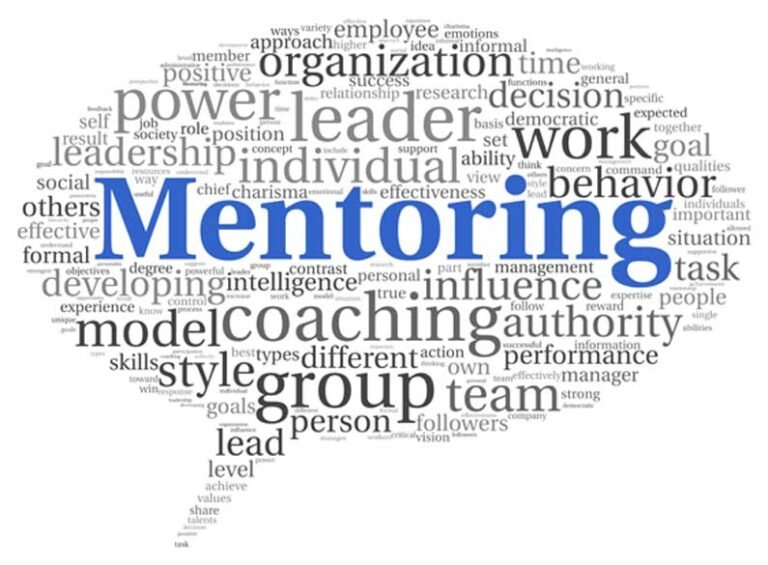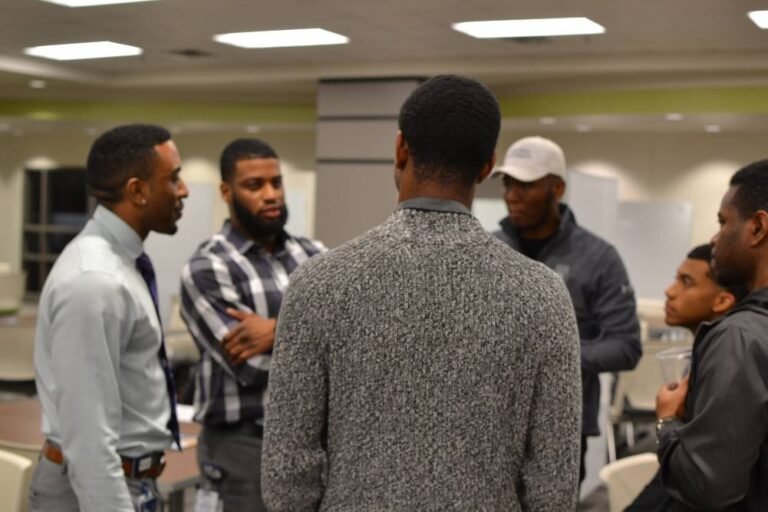Speaking Truth to Power: Lessons from Vicky Triponey’s Stand Against Joe Paterno
In the world of college sports, there are few names as legendary as Joe Paterno. For over half a century, he held an unshakable grip over Penn State University’s football program, a place affectionately known as “Happy Valley.” However, it became evident between March and November of 2011 that ‘Happy Valley’ wasn’t so joyful for everyone, especially for a group of young boys aged 8-17 over a 15-year period.
The disturbing details of a pattern of predatory behavior, coupled with the complicity of numerous senior-level administrators through their silence and willful negligence, led to a staggering 52 counts of child sexual abuse charges against Jerry Sandusky. Sandusky was not the only one held accountable as the evidence came to light. “Why Mr. Sandusky was allowed to continue using Penn State facilities is beyond me,” Judge John Boccabella remarked. “All three ignored the opportunity to stop Sandusky’s crimes when they had the chance,” the judge pointed out.
Former university president Graham Spanier, 68, received a sentence of 4 to 12 months, with the first two to be served in jail and the remainder under house arrest. Former university athletic director Tim Curley, 63, was sentenced to 7 to 23 months, with three months in jail. Former vice president Gary Schultz, 67, received a sentence of 6 to 23 months, with two months behind bars. The judge also criticized the actions of the late head football coach, Joe Paterno, who, like the other administrators, failed to alert child-welfare authorities or the police to the 2001 complaint but was never charged with a crime.
However, amidst the cheers of adoring fans and the glamor of the gridiron, there is a story of one woman who dared to challenge the established order. There is always one who reminds us that the right time to do the right thing is now, echoing the words of the late Martin Luther King Jr. in 1966. What those involved knew or did not know, as well as their actions, will ultimately be a matter between them and their higher power, especially as some continue to dispute the narratives presented by the prosecutors to this day.
Vicky Triponey, a former vice president at Penn State, was placed on a journey that became a powerful reminder in speaking truth to power. As I reflect on what is currently happening across the world that is basically starving for courageous acts of leadership in the face of personal ridicule and/or professional peril, I want to take a moment to remember and honor Vicky Triponey’s courageous stand against powerful figures in university leadership and a beloved national sports icon. It also unfolds against the backdrop that this scandal, in addition to others that preceded it, despite its heinous nature, did little to correct the Bystander Effect. This is primarily because one central inescapable fact remains – that self-preservation and personal legacy can be as powerful as the resolve to “do the right thing”.
Understanding Bystander Effect
It is important to understand the concept of Bystander Effect before we further explore Dr. Triponi’s experiences at Penn State. This is when people, even if they witness something wrong happening, hesitate to step in or speak up. The idea of the Bystander Effect was first proposed in 1964 by social psychologists John M. Darley and Bibb Latané. This psychological phenomenon can allow harmful situations and toxic workplace cultures to persist. One of my earliest exposures to the Bystander Effect in real-time was through a YouTube video, which left a lasting impression on me.
At Penn State, as in many other workplaces, the Bystander Effect acted like an invisible force, silently holding back those who were aware of the issues but chose not to take action. This phenomenon is not uncommon in workplace environments. Triponey’s story begins in a place where speaking out is anything but ordinary. One can only hope that Penn State has since addressed and corrected these issues in the wake of this dark chapter in its history – I am hopeful. However, it is essential to emphasize that this post is not intended to shame Penn State. The Bystander Effect and the challenges of speaking truth to influential leaders are not unique to one school. Higher Education experienced several high-profile incidents following the Sandusky scandal, so Penn State didn’t serve as the cautionary example we had anticipated. In fact, it’s safer to assume that these issues occur more frequently than we know. We only hear about the most significant instances that become public knowledge.
Speaking Truth to Power
Speaking truth to power is an act of courage that’s often easier said than done. It involves challenging authority figures and addressing uncomfortable truths in the face of opposition. Vicky Triponey, however, was not one to back down. In the hallowed halls of Penn State, she stood her ground. As the vice president overseeing student discipline, she confronted Joe Paterno himself over matters of player discipline. This was no small feat, as Paterno was a towering figure in the world of college sports. But Triponey’s determination to do what she believed was right serves as a shining example of speaking truth to power. Speaking truth to power can be terrifying, and Vicky Triponey’s unwavering commitment was commendable. Her story reminds us that other important battles are not only fought not on the field but within the corridors of institutions.
Consider another high-profile university scandal that followed the Sandusky scandal and underscores yet again the importance of speaking up: the Larry Nassar case at Michigan State University. Nassar, a former USA Gymnastics and Michigan State University sports doctor, was found guilty of sexually abusing hundreds of young athletes under the cover of medical treatment. One of the most unsettling aspects of this scandal was how individuals who had knowledge of Nassar’s misconduct failed to report it promptly. For years, reports and concerns about Nassar’s behavior reached the ears of officials within the university. Still, action was delayed, and he continued to abuse young athletes. Inexcusable.
Failing to speak truth to power had devastating consequences. Lives were irreparably harmed because those who had knowledge of the wrongdoing did not take immediate and decisive action. The reluctance to confront authority figures and address uncomfortable truths allowed the abuse to persist. For many of you, this may sound very familiar in your day-to-day work but on a much smaller scale and platform. The concern we should all share about not taking action should focus on the terrible things that happened and the long time it takes for survivors to heal. Studies tell us that recovering from workplace trauma can take many years.
Triponey’s courage in challenging Joe Paterno’s authority starkly contrasts these instances of silence in the face of wrongdoing. It reminds us that speaking up is not just a moral obligation; it’s a way to protect the vulnerable and hold those in power accountable.
The Seen and Unseen Cost of Speaking Up
As many of us in higher ed know, Vicky Triponey’s bravery came at a steep cost. Her decision to challenge and speak out against powerful figures led to personal and professional repercussions. She faced isolation, received threatening phone calls, and even saw her property vandalized. The toll on her well-being was immeasurable. Yet, the unseen cost was perhaps even greater. Triponey’s resignation under pressure from Penn State meant leaving behind a 30-year career in higher education. Unlike Jerry Sandusky, who was later convicted, she did not receive any golden handshake or privileges. She was shunned by many in the the community she had been a part of.

Vicky Triponey’s story reminds us of the critical importance of speaking up against wrongdoing. Remaining silent in the face of unethical behavior can have far-reaching consequences. It perpetuates a culture where misconduct thrives, and accountability evaporates. Triponey’s courage serves as a stark reminder that individuals play a pivotal role in shaping organizational culture through their actions and decisions.
Strategies to Speak Up Politically Savvy
· While speaking out is crucial, doing so while navigating the political landscape of organizations can be a daunting task. Here are some strategies to consider:
· Build Alliances: Seek allies within the organization who share your concerns. Strength often comes from unity.
· Find Support: Identify mentors or colleagues who can provide guidance and support during challenging times.
· Navigate Power Dynamics: Understand the power structures within your organization and approach sensitive issues with care.
· Maintain Professionalism: Regardless of the challenges you face, always maintain professionalism in your actions and communications.
· Documentation: Develop a discipline of professional journaling.
In Dr. Triponey’s quest to speak truth to power, we discover a wellspring of inspiration and invaluable lessons. Her narrative underscores the significance of challenging the established norms, even in the face of seemingly insurmountable obstacles. It serves as a poignant reminder that silence when confronted with wrongdoing only perpetuates detrimental cultures. As I contemplate Triponey’s resolute stance, I am grateful, especially on this day of thanks, to have her as one of the many examples of bravery in the face of incredible resistance.
1. What can you promote ethical behavior and positive change?
2. How can you be an agent of transformation within our spheres of influence?
Remember, speaking truth to power is not just an act of courage; it’s a catalyst for change. It’s the force that can shape a better future for organizations, communities, and society at large. Vicky Triponey’s legacy is a testament to that truth.
References
Leonard, Charles. (2014). Investigating the Dynamics of Bystander Behavior in Child Sexual Abuse Incidents. In BSU Master’s Theses and Projects. Item 4. Available at https://vc.bridgew.edu/theses/4







